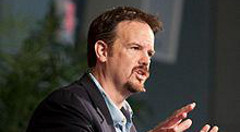 I hate bad stats. They undermine the credibility of Christians and can confuse the issues. But when we apply stats wisely, they can be of great benefit.
I hate bad stats. They undermine the credibility of Christians and can confuse the issues. But when we apply stats wisely, they can be of great benefit.
While I often say, “facts are our friends,” they aren’t always friendly.
So while I often say “facts are our friends,” they aren’t always friendly. For example, in 2009, LifeWay Research found that 55 percent of church attendees believed they had grown spiritually over the last year, while only 3.5 percent of those displayed any measurable growth. That’s not a very warm and fuzzy stat, but it’s an honest one.
Sometimes, though, churches tend to be more hopeful than honest when they look at their situation. That can be good—we are a people of faith. However, bad information undermines good strategy. I believe that churches must have the right information to make that right decisions.
That takes intelligent self-assessment.
When we speak of the need for an assessment culture, we want churches and Christians to avoid making claims that are unsubstantiated. We, above all others, need to be trustworthy, and we can do that with accurate assessment of where we are as individuals and a church.
Churches need honesty as much as they need to have hope.
Assessments are a great way to examine the truth about today and provide a direction for tomorrow. And an assessment culture within a church provides a way forward in thinking about where we are and how to go forward in making disciples.
For so long, churches have claimed success because their focus was on bodies, budgets, and buildings. Other areas, where the picture was not as pretty, were ignored. Creating an true assessment culture is about changing the scorecard. Attention is given to the factors that really lead to biblical growth and transformation within a church across cultural contexts and regardless of the size.
For so long, churches have claimed success because their focus was on bodies, budgets, and buildings.
In Transformational Church, Thom Rainer and I examine the research to determine and explain the factors that were common to those churches across the spectrum who were experiencing true transformation. It’s why we developed our Transformational Church Assessment Tool. Instead of targeting areas that had been traditional measuring sticks for discipleship, we evaluated a broad spectrum of churches that were seeing transformation take place. They made disciples. By investigating what was taking place, we proposed a new scorecard to assess the actual health of a church.
I’m not concerned so much that you use our LifeWay Research assessment tools—though I believe in it because the methods are verified statistically and repeatable in any church setting—I just want you to be engaged in assessing your ministry and doing so in a way that gives you an accurate portrayal of your success or lack thereof.
An assessment culture helps you take a realistic look at what your priority areas should be and evaluate how you are making progress in those. Too often we allow ourselves to slip into a false comfort from anecdotal progress that is not really indicative of what is happening.
We need churches that are being transformed by their dynamic relationship with Christ.
I want your church to be transformational, and I know you do as well. We need churches that are being transformed by their dynamic relationship with Christ and, as a result, transforming their members and their surrounding neighborhood. Establishing an assessment culture can help you find and address the areas where you are not seeing that occur as well and as often as it could.
Later in this series on creating an assessment culture, I will be talking about why it is you need it, what are some wrong ways to do it, and two of the factors that must be a part of any church assessment culture.
While “creating an assessment culture” may not sound like the most intriguing topic, I believe it is vital to the health of your church. It enables and empowers you to not just think you are making disciples on a consistent basis, but to know that your church is regularly fulfilling the Great Commission.
Ed Stetzer is the president of LifeWay Research. For the original article, visit edstetzer.com.
Get Spirit-filled content delivered right to your inbox! Click here to subscribe to our newsletter.
Dr. Mark Rutland's
National Institute of Christian Leadership (NICL)
The NICL is one of the top leadership training programs in the U.S. taught by Dr. Mark Rutland. If you're the type of leader that likes to have total control over every aspect of your ministry and your future success, the NICL is right for you!
FREE NICL MINI-COURSE - Enroll for 3-hours of training from Dr. Rutland's full leadership course. Experience the NICL and decide if this training is right for you and your team.
Do you feel stuck? Do you feel like you’re not growing? Do you need help from an expert in leadership? There is no other leadership training like the NICL. Gain the leadership skills and confidence you need to lead your church, business or ministry. Get ready to accomplish all of your God-given dreams. CLICK HERE for NICL training dates and details.The NICL Online is an option for any leader with time or schedule constraints. It's also for leaders who want to expedite their training to receive advanced standing for Master Level credit hours. Work through Dr. Rutland's full training from the comfort of your home or ministry at your pace. Learn more about NICL Online. Learn more about NICL Online.


